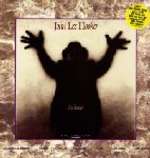John Lee Hooker - The Healer - Silvertone Records - Blues
 |
Out of Stock |
Track ListingA1 The Healer (5:36)A2 I'm In The Mood (4:30) A3 Baby Lee (3:43) A4 Cuttin Out (4:35) A5 Think Twice Before You Go (2:58) B1 Sally Mae (3:15) B2 That's Alright (4:23) B3 Rockin Chair (4:09) B4 My Dream (4:02) B5 No Substitute (4:07) Media Condition » Near Mint (NM or M-) Sleeve Condition » Near Mint (NM or M-) |
|
| Artist | John Lee Hooker | ||
| Title | The Healer | ||
| Label | Silvertone Records | ||
| Catalogue | ORE LP 508 | ||
| Format | Vinyl Album | ||
| Released | 1989 | ||
| Genre | Blues |
Other Titles by John Lee Hooker
• Boom Boom • Tantalizing With The Blues •
Some Other Artists in the Blues Genre• Gary Moore • The Milcho Leviev Quartet • Stevie Ray Vaughan & Double Trouble • Randy Weston • Doug MacLeod • Sonny Terry & Brownie McGhee • Paul Roberts (4) • Pete Seeger • Billie Holiday • Lonnie Mack • Willie And The Poor Boys • B.B. King • Creedence Clearwater Revival • J.J. Cale • Robert Cray Band, The • Larry McCray • Little Milton • Johnny Mars • Albert King • Sister Rosetta Tharpe & The Gospel Tabernacle Choir And Players • Annette Peacock • Juicy Lucy • The Blues Brothers • Mighty Joe Young • The Robert Cray Band • Robert Cray • Albert Collins And The Icebreakers • Albert Collins & Robert Cray & Johnny Copeland • Big Brother & The Holding Company • Chris Rea • Ben E. King • Buddy Guy • Elmore James • |
Some Other Artists on the Silvertone Records Label• Solar Race • Jubilee • The Men They Couldn't Hang • Brendan Croker And The 5 O'Clock Shadows • Stone Roses, The • The Stone Roses • Buddy Guy • |
Information on the Blues Genre
Blues is the name given to both a musical form and a music genre that originated in African-American communities of primarily the Deep South of the United States at the end of the 19th century from spirituals, work songs, field hollers, shouts and chants, and rhymed simple narrative ballads. The blues form, ubiquitous in jazz, rhythm and blues, and rock and roll, is characterized by specific chord progressions, of which the twelve-bar blues chord progression is the most common. The blue notes that, for expressive purposes are sung or played flattened or gradually bent (minor 3rd to major 3rd) in relation to the pitch of the major scale, are also an important part of the sound.The blues genre is based on the blues form but possesses other characteristics such as specific lyrics, bass lines and instruments. Blues can be subdivided into several subgenres ranging from country to urban blues that were more or less popular during different periods of the 20th century. Best known are the Delta, Piedmont, Jump and Chicago blues styles. World War II marked the transition from acoustic to electric blues and the progressive opening of blues music to a wider audience. In the 1960s and 1970s, a hybrid form called blues-rock evolved.
The term "the blues" refers to the "blue devils", meaning melancholy and sadness; an early use of the term in this sense is found in George Colman's one-act farce Blue Devils (1798). Though the use of the phrase in African-American music may be older, it has been attested to since 1912, when Hart Wand's "Dallas Blues" became the first copyrighted blues composition. In lyrics the phrase is often used to describe a depressed mood.
Data from the Discogs music database. Submit a Release.

